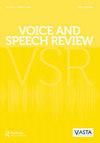声乐科学是无流派声乐与合唱教育学的基础
IF 0.6
Q1 Arts and Humanities
引用次数: 0
摘要
在2020年8月的加州合唱协会合唱峰会上,Rollo Dilworth博士认为,美国音乐教育“仍然存在问题,在某些方面与包容、公平和获得的原则背道而驰”(Dilworth2020,1)。他呼吁该行业“规划合唱音乐教育的新愿景”,这是“一种真正包容、公平和可获得的艺术形式”(1)。他要求教育工作者开发一种更广泛的声音训练方法,以取代历史上以欧洲为中心的教学视角,通过这种视角来评估和教授学生。美国历史表明,分离往往是不平等的。我们在加州圣玛丽学院(SMC)的声乐合唱教学方法挑战了风格分离主义,打破了将一种教学方法提升到另一种教学法之上的历史风格筒仓,或者至少为希望探索广泛流派的歌手带来了障碍。本文概述了我们在SMC开发的“非流派偏见”方法,该方法使用基于声乐科学的教学法来教授广泛的合唱音色和流派。我们发现,这种方法是美声唱法或“古典”方法的一种富有成效的替代方法,Dilworth博士警告说,这种方法会带来负面后果,并与国家解决多样性、包容性和准入问题的努力产生共鸣。本文章由计算机程序翻译,如有差异,请以英文原文为准。
Vocal Science as the Basis of a Non Genre-Biased Vocal and Choral Pedagogy
At the August 2020 California Choral Association Choral Summit, Dr. Rollo Dilworth argued that American music education “continues to be problematic and in some ways antithetical to the principals of inclusion, equity, and access” (Dilworth 2020, 1). He calls upon the profession to “chart a new vision of choral music education” that is “a truly inclusive, equitable, and accessible art form” (1). He challenges educators to develop a broader approach to voice training to replace the historically Eurocentric pedagogical lens through which students are assessed and taught. American history reveals that separate is often not equal. Our vocal-choral pedagogical approach at Saint Mary’s College of California (SMC) challenges stylistic separatism, breaking down the historical silos of style that elevate one pedagogy over another, or at least pose obstacles for singers wishing to explore a broad palate of genres. This article outlines the “non genre-biased” approach we have developed at SMC using vocal sciencebased pedagogy to teach a broad spectrum of choral-vocal timbres and genres. We find this approach to be a productive alternative to the bel-canto or “classical” methods Dr. Dilworth cautions as posing negative consequences, and to resonate with national efforts to address diversity, inclusion, and access.
求助全文
通过发布文献求助,成功后即可免费获取论文全文。
去求助
来源期刊

Voice and Speech Review
Arts and Humanities-Visual Arts and Performing Arts
CiteScore
1.00
自引率
66.70%
发文量
51
 求助内容:
求助内容: 应助结果提醒方式:
应助结果提醒方式:


